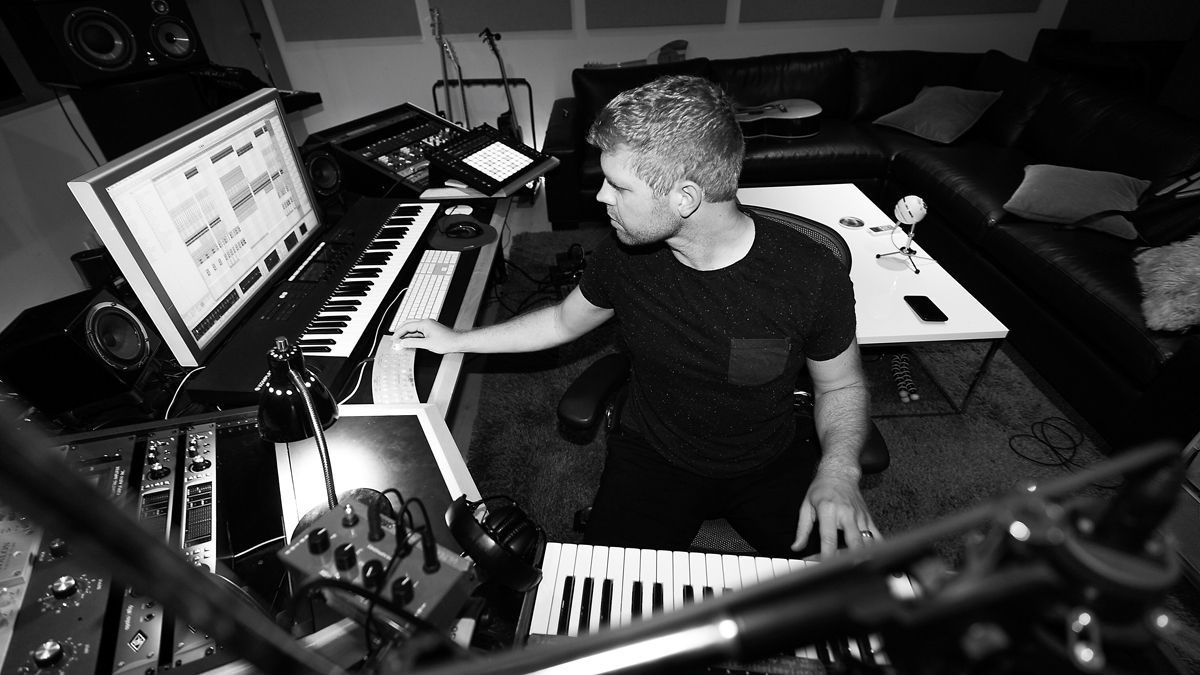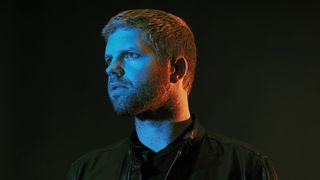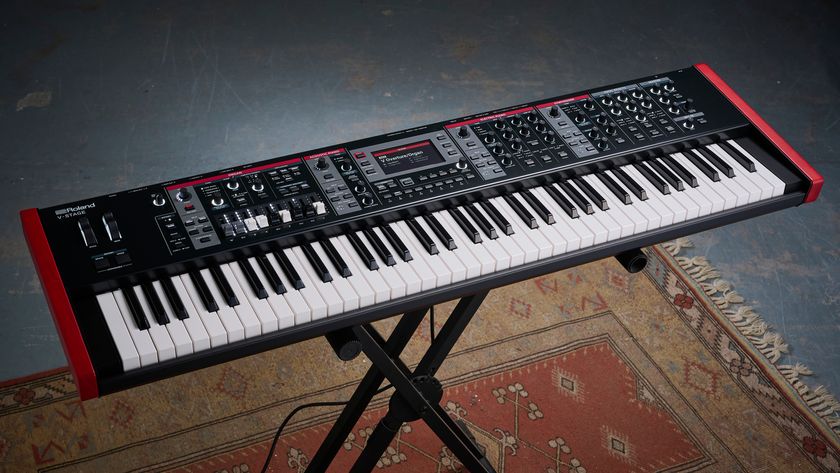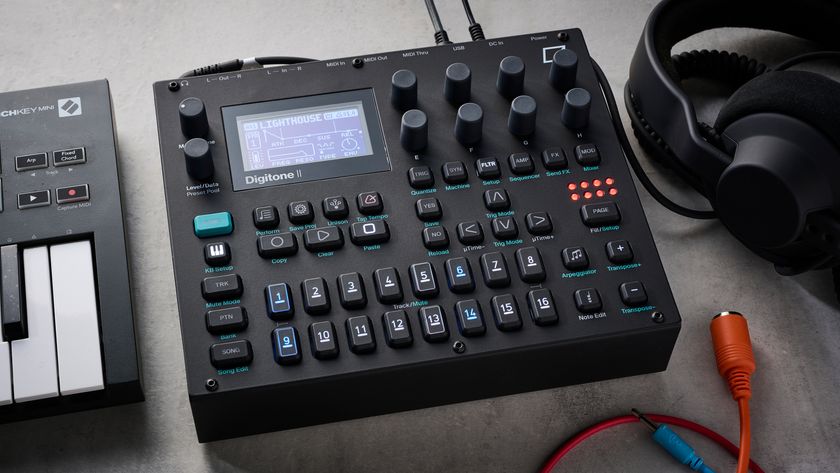Morgan Page: “Ableton’s very flat and cartoony; it’s almost like you’re reading a paper. That changes your perception of the sound”
EDM’s hardest-working producer on software, success and diversifying

It’s 2008, and EDM is beginning to explode in the USA, where acts like Deadmau5 and Avicii will soon be household names. After years of toiling away, staring at blank screens and slaving away on tracks and remixes for little reward - a feeling most of us are familiar with - all that Morgan Page needed was one spark to ignite his career.
Fast forward to 2020, and the spark has been and gone, leaving Page as one of the seminal acts of the EDM explosion, with an enviable string of achievements under his belt. So, how did it all happen? We talked with Morgan to try and pin down the roadmap for a journey to stardom…
We’re talking just after one big release in the software world, reFX Nexus 3. You’re on the record as a big Nexus2 fan: are you liking v3?
“To me it’s all about the workflow with this update. I guess they’ve added some new sounds, but that’s really not the draw. It’s more the colour coding, the timbre, the sounds… everything’s in a better layout.
“Also, some really cool stuff they’re doing with the effects - you can add impulse responses and tails to sounds, which is really interesting. The effects weren’t that innovative in Nexus before. The arpeggiator is a big improvement. Now it’s almost a DAW within a DAW – this is a long time coming.
“One big thing for me is that all your presets are saved in the cloud. I have a mobile setup and I have my studio setup, and it’s usually such a pain to keep two versions of your favourites for your synths and stuff. That was always a big headache when it came to the Nexus expansions.”
You can’t get far in dance music without seeing another producer or DJ raving about Nexus2…
Get the MusicRadar Newsletter
Want all the hottest music and gear news, reviews, deals, features and more, direct to your inbox? Sign up here.
“It is funny, it was so ubiquitous that they almost don’t need any testimonials from anyone. They told me they already had too many testimonials. I work with so many companies and it’s like pulling teeth to get quotes from artists, but Nexus has so many fans that they don’t need any extra help.”
Nexus2 was so ubiquitous that they almost don’t need any testimonials from anyone. They told me they already had too many testimonials.
You’ve got a few analogue units in the rack - it’s not just digital all the way, then?
“It is interesting now. People ask you to choose if you go analogue or digital. Why bifurcate it? Why be forced to choose? Use both where you can.
“In my studio I have a rack of analogue gear for tracking vocals. Some of it’s unused but I love what Universal Audio are doing - I have two of those Apollo X8Ps. To me it’s all about workflow; as long as the audio quality is good, it’s all good.
“The downside with analogue is when something breaks down and a tube needs to be replaced. That’s a huge headache. If I can’t track vocals because a tube is in the shop getting replaced, that’s a big disadvantage.
“So I love both. I kind of like having both versions of the same gear. Like UA just launched the Avalon VT-737. I’ve had that in my rack since college, and so it’s cool to have both. When you know it in and out, you can see where the software may be different; it actually has some different features to the analogue version, so you can use them in different ways.”
Have you compared the Avalon emulation to the real thing yet?
“Yeah I’m still trying it out. After having it for 15 plus years in my rack, I feel like I should be able to tell the difference, but it’s just nice even to have preset recall on these plugins.
“I do think it’s really nice with analogue stuff that, even though there are breakdowns, there’s no updates and you’re not thinking about latency. Those are huge differences now. The most powerful use of it all is just a combination of both.
“I’m especially using the UAD Apollo Console. I’m using that for tracking, and that’s a huge advantage. It’s like having a mixing desk on the front end, which is really nice. It’s getting more and more complex now dealing with authorisations for plugins, but that’s getting a little better now that everyone’s doing cloud installers - that’s really helped a lot.”

What was your first DAW?
“The first thing that got me into music DAW-wise, and it was barely even a DAW, was tracking software - I used Impulse Tracker and Scream Tracker way back in those days. So I started with computer stuff way back before they were powerful enough.
“Trackers felt like a player piano almost. It was this scroll of little notes and vibrato programming; it was such a backwards way to make music but it was the only way I could afford at the time. I definitely couldn’t afford a Pro Tools rig back when I was 12.
“I started with trackers, moved to more of a MIDI-based MPC studio where everything’s just running off the MPC as a brain. Then I graduated to Pro Tools, and I used it for a long time, but I got so frustrated with the MIDI and error messages and stability. Pro Tools is a great platform, but when I discovered Ableton, that was a creative gamechanger. Especially now - it’s so stable.”
When did you make the switch to Ableton Live? There was a time there when it was still somewhat underground, but it’s an established DAW amongst most producers now…
“I wouldn’t have expected such a sea change to Ableton - Logic was the holy grail of dance music for a while. I think Logic looks the best and feels amazing, but Ableton’s got a little of that intuitiveness in how it strings together the presets and the workflow.
I think Logic looks the best and feels amazing, but Ableton’s got a little of that intuitiveness in how it strings together the presets and the workflow.
“I think about ten years ago I started using it for live shows. These days, I DJ with CDJs and rekordbox, but back then I was using Ableton for everything: for the radio shows, for live shows and for production. Today I even do vocal tracking in Ableton as well.
“Max for Live is more user friendly; then there’s the ability to colour-code your plugins. It’s hard to make creativity work if the workflow isn’t good; if the plumbing isn’t set up ahead of time. That’s really what I look for.”
Ableton Live updates are often a little restrained compared to other DAWs. Is there anything that you feel is missing in the current version?
“They made a lot of small changes. It’s funny that only recently they let you rename your inputs and outputs on your soundcard. They added these exotic things like capturing MIDI after you’ve played it, but there’s still some basic stuff they’ve got to upgrade.
“It’s all FL Studio and Ableton now. I think the biggest problem was that Ableton’s presets have a very flat, clinical sound to them. They don’t have this beefy, processed Splice pack sound to them - I kind of want to throw them into a multiband compressor and just smash them to add more flavour.
“The stock plugins are also so flat that I think it influenced people in how they thought the DAW sounded. There’s a placebo effect to the visuals too - whereas in Logic, everything’s glossy, Ableton’s very flat and cartoony; it’s almost like you’re reading a paper. That changes your perception of the sound.”
Have you ever thought there was anything to that? DAWs sounding different?
“Maybe it’s down to your converters, too. I have the top-of-the-line Pro Tools, the HDX card converter, and that’s a very loud converter. So if something’s just a dB louder, you’re going to think it sounds better. Now I’m doing everything through the Apollos and UAD, and even those sound a little quiet. I’ve done all the tests, summed everything down or done null tests; there’s almost no difference.
“These days I think it’s all about your ingredients, the quality of your samples, how you sidechain, how you mix, and staying diligent to the end. That’s the hardest part - not giving up and finishing the song or having someone else take off the heavy burden of mixing.”
You’re not a fan of sending your music off for mixing then? Not even when it means you can get more tunes started?
“Ultimately, if you hear a song too many times and you don’t get goosebumps anymore, you lose all objectivity. I guess one thing they’re paying for is fresh ears.
“I did a pack for Splice and it was really tedious but also amazingly rewarding to use these presets that I made for Serum every day, and to use these loops and audio that I made for them. It took so much work, but because I was focused on designing sounds rather than switching between that and mixing and songwriting, I found I was much more effective at that one task. You feel like you’re greased for the job and you can get that done.
I did a pack for Splice and it was really tedious but also amazingly rewarding to use these presets that I made for Serum every day.
“Just like the DJ. When I get into DJ mode, I have the ear and the muscle memory for playing out, and if I have to shift back into studio mode, it’s a whole different mindset.”
You’ve got a nicely restrained studio setup there - we often see people with hundreds of synths that they probably don’t use often.
“I was almost going to write a blog post about this because I do the Quick Tips, a side project where I collect my ideas.
“There are a lot of rabbit holes that you can get into, and you can get out into the weeds a little bit… but with some things that’s part of the process. You could get into modular synths - that’s probably one of the deepest rabbit holes you can go down. Totally valid and awesome.
“But it becomes like collecting sneakers or something. It’s easy to turn the profession into a hobby - you can go backwards; usually you turn a hobby into a profession. If it’s your bread and butter, you have to have a process where you’re getting things done. It’s easy to get caught in just doing A/B comparisons on gear, but that’s what you guys are supposed to do, that’s your job!”
You’ve had Grammy nominations, big-name remixes, successful albums, but what are your proudest achievements so far?
“You start your career with goals, and then the goals shift and change. Getting a Grammy is a nice goal but it’s not a good goal - to me it’s more about creating exciting music that makes people come to shows. The most rewarding goal? Playing to a crowd of 10,000 people for the first time rocks. That was a very gratifying moment.
“I mean obviously the Grammy nomination was a big one; they’re all little rites of passage and then it’s kind of a threshold shift. You achieve something and then it’s like, ‘Now what?’.
“For me it’s more about how to sustain that excitement and that momentum - the goal isn’t the outcome of the process, it’s not about making money and flying around the world, it’s about loving the process and continuing to love the process. You’re in there and you’re doing the work because you like the work.”
Do you think having big goals can backfire?
“Over the years I started having these big tipping-point moments… started thinking I’ve got to get a Grammy and I’ve got to sign to this label. But it puts pressure on you to have these singular achievements, so in the end it has to be more holistic - loving the whole process. I’m a tech nerd; I love the process of learning new gear, new equipment, new ways to combine my love for music and technology.
“I think my favourite moments are maybe the early tipping points in my career when I had Deadmau5 remix The Longest Road, and just watching things take off. You feel your whole world shifts. You go, ‘Woah, this just changed my life’. I think the most exciting moments are when things tilt off-axis and you’re in a whole new arena. Those are fun to me.”
Things have changed in the music industry in general, of course. Have you found your own way to stay current and interesting now that so much is based around streaming?
“Now you have to one-up yourself every few years. Now it’s a shorter cycle. It’s not about thinking year-to-year now; a year is too long to strategise things these days. You’ve got to be thinking month-to-month to strategise your releases, which is a new pressure but it’s also new flexibility. Like how Chainsmokers are doing the ‘building an album’ approach, where they add a new song, take the old version down and they build a whole album one song a month. It’s genius.
“When one income stream dries up, there’s always a new river of possibility you can tap into. Remixes on their own were a great living for a long time, but then that dried up and I thought I should probably be focusing on originals anyway. There’s always a little silver lining when one area explodes or even dries up slowly and you’re forced to improvise and evolve.”
You’ve given the world a lot of technical and creative advice, but how about a Quick Tip on careers? Getting signed, making it work…
“I remember when I was sending out demos early on… you’re going to get rejected by a lot of different labels. I thought I was going to make it at 21, that I was going to have this Avicii skyrocket to stardom, but it took ten years.
“When I was younger I thought ‘I’ll do about a dozen songs a year and I’ll get lucky and somebody will take me under their wing; some A&R is going to fly me out’. That did happen later but then those deals fizzled. A major label flies you out and then they want everything done already.
“But I had this tendency; I would be buying Future Music, paying 15 dollars in Vermont in the country I grew up. I’d sit in bars and I’d read the magazine and I’d read about guys who’d got signed, sitting on a train with some major label A&R who says, ‘Cool, we’ve got you from here, here’s this huge advance and now ride off into the sunset’…
“But it doesn’t work like that.”
Check out Morgan Page’s Quick Tips on Twitter @mpquicktips and at mpquicktips.com


Future Music is the number one magazine for today's producers. Packed with technique and technology we'll help you make great new music. All-access artist interviews, in-depth gear reviews, essential production tutorials and much more. Every marvellous monthly edition features reliable reviews of the latest and greatest hardware and software technology and techniques, unparalleled advice, in-depth interviews, sensational free samples and so much more to improve the experience and outcome of your music-making.












